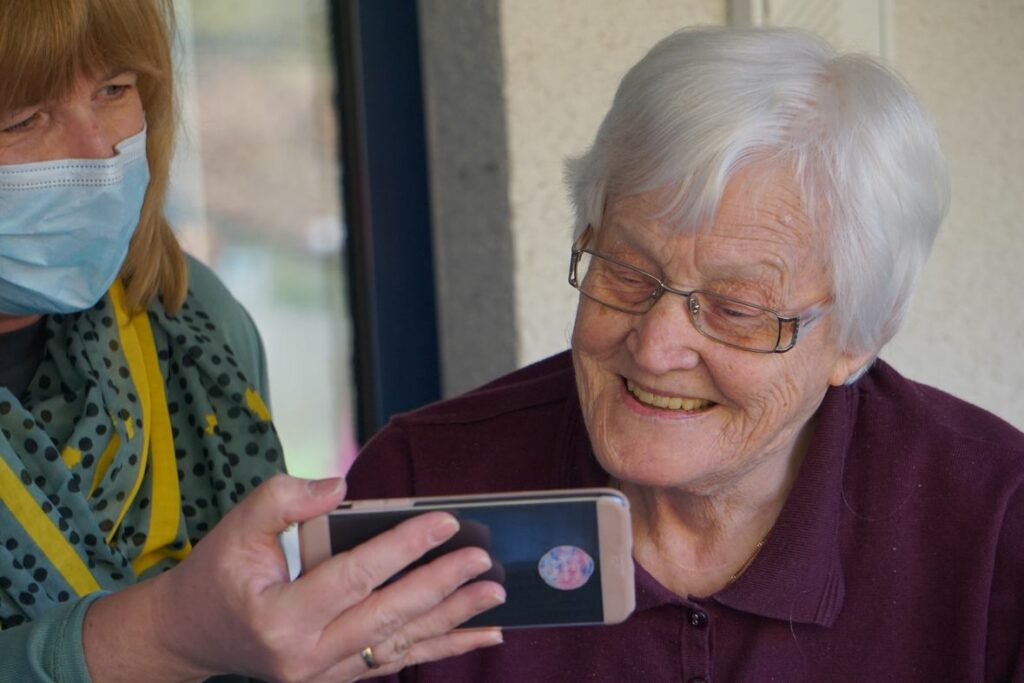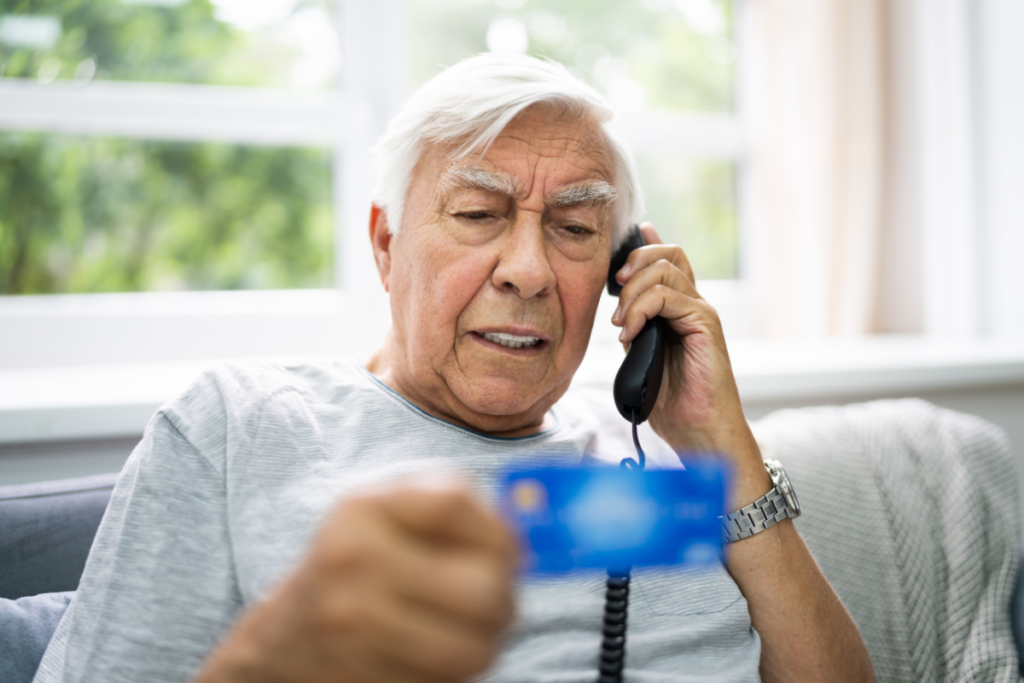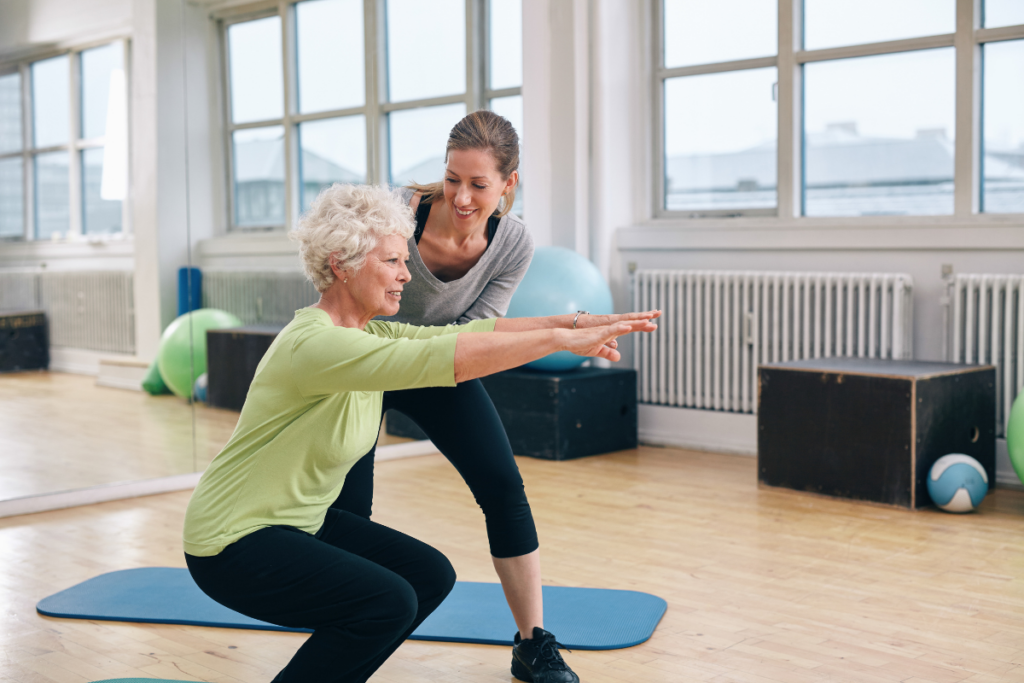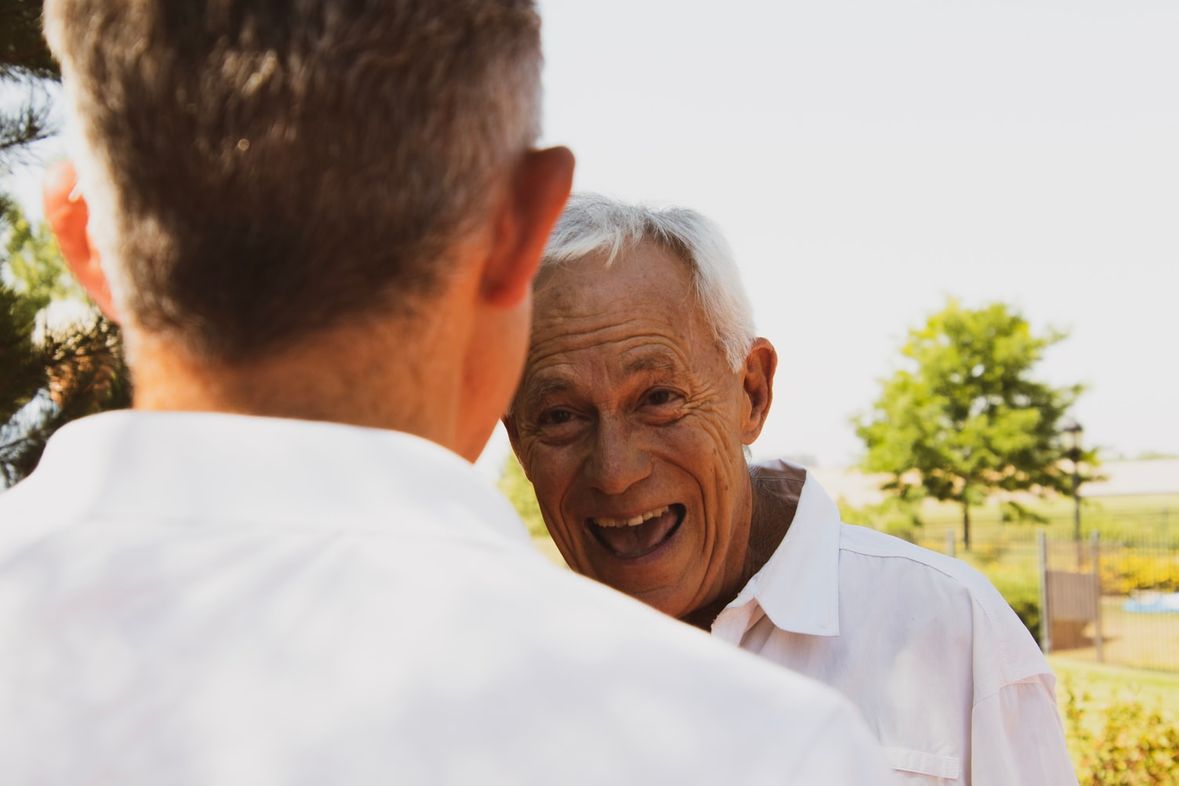Growing old is a privilege denied to many, and caring for the older members of our society is a privilege too.
These are the people who raised us, who worked hard to provide for us….voted for changes that benefit us, fought for our country and our rights. They have stories to tell and have experienced things we never will – thankfully, for the most part!
If you are lucky enough to have parents or grandparents who have been in your life until they reach old age, you might now find yourself in a position of caring for them so that they can enjoy their older age as comfortably and independently as possible.
Here at Care In Kent, we’ve put together our top ten tips for caring for your elderly loved ones.
1. Care At Home
There are few things more distressing to an elderly person than not being able to receive help and care in their environment – normally the home they love and have lived in for many, many years. This is especially true for older people who might be living with a condition such as dementia.
It could be that you’re doing a lot of the caring yourself; housework, shopping, etc….but for respite care, or for the tasks you’re not able to do yourself because of having to work, not living close enough, or because of other restrictions – care-providers like Care In Kent can help.
From running errands to cooking meals, helping with bathing, dressing, or after-care following an illness or stay in the hospital, at-home care is a way that an elderly person can receive all the help and care they need in the comfort of their own homes.
2. Help Them To Get Tech-Savvy!
Whether it’s doorbell systems that use a camera, using a smartphone, setting up Facetime appointments with a doctor, or using the internet to keep in touch with friends and family around the globe, modern technology certainly has its place in improving the lives of our elderly loved ones.
Further reading: ‘How Smart Technology Can Help You Stay Independent For Longer’
And, ‘How Technology Could Change The Lives Of The Elderly’
The articles up above will tell you everything you need to know about the latest technological advancements in at-home health care, security systems, and communication that could benefit the older members of our society.

3. Create A Safe Environment
As we age, trips and falls are more common. We might not be as steady on our feet as we once were, our reactions are slower, and bumps and bruises that might not have bothered us when we were younger can be a lot more serious now, as well as slower to recover from.
We can minimise these risks for our elderly loved ones, and keep them independent for longer, by making sure that their environment is as safe as possible – particularly important if the person is living with dementia, mobility issues, or problems with their sight.
Simple things, like making sure their home isn’t too cluttered, that anything they might need to prepare food or fix a drink is within easy reach, and that there are clear walkways around the home, can make all the difference.
4. Check Medications
The older we get, the more likely it is that we have to take daily medications. Conditions such as high blood pressure, diabetes, and arthritis are common in elderly people, and not taking prescribed medications, or not taking the correct dosage at the right time can be dangerous.
If you have an elderly loved one who has to take medication, make sure that prescriptions are filled when needed. A pill box with organiser compartments can be useful if they have to take several different types of medications a day.
Make sure that out-of-date medications are returned to the pharmacy, and that there is a schedule in place so that doses aren’t missed. If your elderly family member is prescribed a new medication, make sure that you’re both aware of any potential side effects or possible interactions with the current medication.
If your loved one is living with a condition such as memory loss or Alzheimer’s, they might need more help when it comes to medication. Ensure that medications are kept somewhere securely so that they don’t take them more often than necessary, and if possible make sure that you or someone else can be there when medications need to be taken.
5. Home Modifications
We’ve already talked about making sure the home of an elderly person is as safe as possible, but for someone who has mobility issues or is particularly frail, home modifications might have to be made.
These could include:
– Ramps for wheelchairs or walkers
– Installing handrails in showers, baths, and near toilets
– Installing a raised toilet
- Make sure there are non-slip bath mats in place
– Installing adequate lighting, and possibly ones with auto-sensors if they have to get up at night - Installing smoke alarms or carbon monoxide detectors if they’re not already in the home
6. Taking Care Of Important Paperwork
Although it’s not an easy conversation to have, making sure that an elderly loved one has important paperwork up-to-date, such as a will or power or attorney will provide peace of mind, and can save a lot of stress and upset later on.
This also brings us to:
7. Keeping On Top Of Finances

An older person might not feel comfortable talking about their finances, but it is important to make sure that bills are dealt with and paid on time. This is especially vital if your loved one is on a fixed income and needs to stick to a budget.
The elderly can be particularly vulnerable to scams, so your elderly loved ones must be aware that they shouldn’t give out passwords or bank details – even if they receive a phone call, email, or text that seems to legitimately be from their bank.
Scammers no longer just knock on the front door – they use technology to prey on their victims, and your loved one might not realise they’ve been duped until it’s too late.
We’ve detailed ways that older people can protect themselves from scammers in our article, ‘Protecting The Elderly From Scammers’
8. Driving Issues
For most people, regardless of age, driving is a great source of independence and, for older people in particular, losing the ability to drive themselves due to either illness or frailty can be devastating.
Options such as delivery services for groceries, helping to run errands, or even hiring a driver, can be ways to lessen the impact that no longer being able to drive can have.
There’s no real evidence that an older driver is any more unsafe than a younger driver (the opposite in fact in a lot of cases), but slower reaction times, failing eyesight, declining cognitive abilities, and a higher risk of injury or death if involved in an accident, are all reasons to regularly assess the driving abilities of an elderly loved one.
9. Helping Them Stay Active

We all know the importance of exercise when it comes to staying fit and healthy in both body and mind and for older people this is even more important.
Regular exercise is good for keeping joints and muscles supple, and it can stave off depression by flooding the body with feel-good hormones.
Even just a gentle walk is beneficial; it gets an older person out of the house and into the fresh air. Older people are more likely to feel lonely and isolated – especially if they have lost a spouse – but taking part in a walking group or senior swimming class can be an opportunity to meet like-minded people and socialize, as well as get some much-needed exercise.
Even an older person who has limited mobility or is confined to a bed or chair can take part in regular exercise. There are many online exercise classes specifically designed for those with low mobility, that can get the blood pumping and keep someone as active as possible!
10. Don’t Forget To Care For Yourself!
We’ve included this as one of our top ten tips because we know that caring for someone who is elderly can be as challenging as it is rewarding, and you’re likely to experience a range of emotions.
You might have days, where you feel guilty that you’re neglecting your children or partner because you’re caring for an elderly, loved one; or days when you are frustrated, overwhelmed, drained…..maybe even resentful of your loved one, and it’s important to know that not only are these feelings common, they’re also quite normal – and they DON’T mean that you love the person any less!
Remember to take some time for self-care – after all, we can only care for others if we are well-cared for ourselves.
Care In Kent offers respite services for carers, where we can come and take care of all the day-to-day stuff for your loved one, or just run the odd errand, as little or often as you need.
If you want to know more about how Care In Kent can help you to care for an older person in their own home, get in touch of give us a call on 01233 619530, and speak to a member of our dedicated team.


